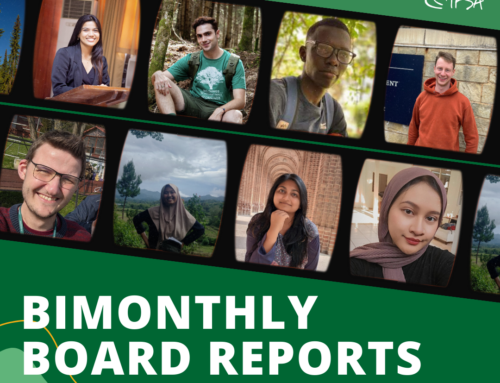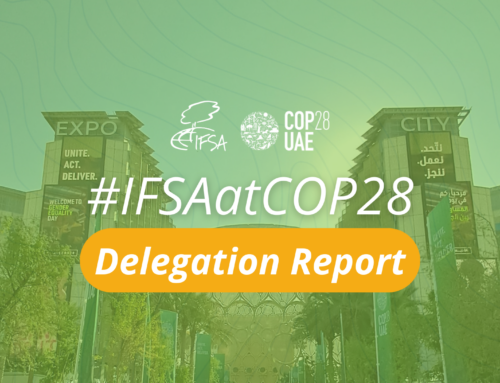Note by the author:
Whenever we are speaking about Climate Change, the earth and future generations, the song “Red Flag” starts playing in my mind with the following line:
“The kids of tomorrow don’t need today when they live in the sins of yesterday”
– Billy Talent
On Monday, 8th May, we visited an event regarding “Climate Change and the rights of the child” and we have been lucky to be there. Beside the politicians expressing their support and pledging for change, we had a rather unique chance. A survivor of the typhoon Haiyan, that crushed coastal regions of the Philippians back in 2013 was telling her story.
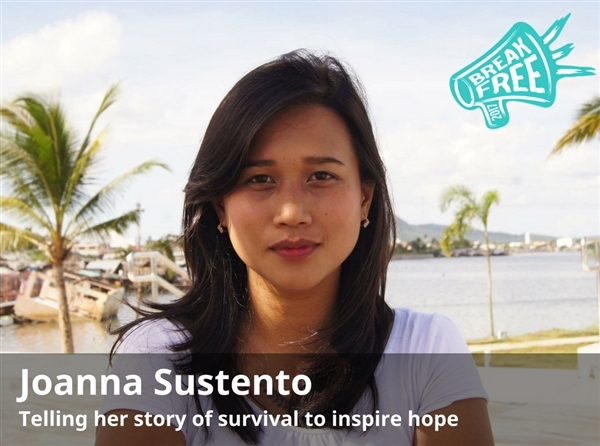 A day like every day else, just with bad weather, could have been the thought when Joanna started describing her experiences. But the day she is describing was not normal and never should be.
They were having breakfast together at the table – 5 O’clock – like always. But something was different. The wind was pushing against the walls and the rain was falling like it wanted to drown the whole region. The house vibrated under the pressure the nature built up. Soon they began to realize what the next few hours will bring. They collected just the most important stuff and tried to leave the house, but the water began to rise. It rose so fast, that within minutes, it was at their chests and the current was pushing them back into the house. When they finally made it out, the real horror just began.
You can hear Joanna’s voice begin to shiver. When she tells us about the experiences she had to make, it becomes clear to everyone, that Climate Change, which will increase the amount of such weather events, is a threat of incomparable magnitude. She lost her family during the storm.
A day like every day else, just with bad weather, could have been the thought when Joanna started describing her experiences. But the day she is describing was not normal and never should be.
They were having breakfast together at the table – 5 O’clock – like always. But something was different. The wind was pushing against the walls and the rain was falling like it wanted to drown the whole region. The house vibrated under the pressure the nature built up. Soon they began to realize what the next few hours will bring. They collected just the most important stuff and tried to leave the house, but the water began to rise. It rose so fast, that within minutes, it was at their chests and the current was pushing them back into the house. When they finally made it out, the real horror just began.
You can hear Joanna’s voice begin to shiver. When she tells us about the experiences she had to make, it becomes clear to everyone, that Climate Change, which will increase the amount of such weather events, is a threat of incomparable magnitude. She lost her family during the storm.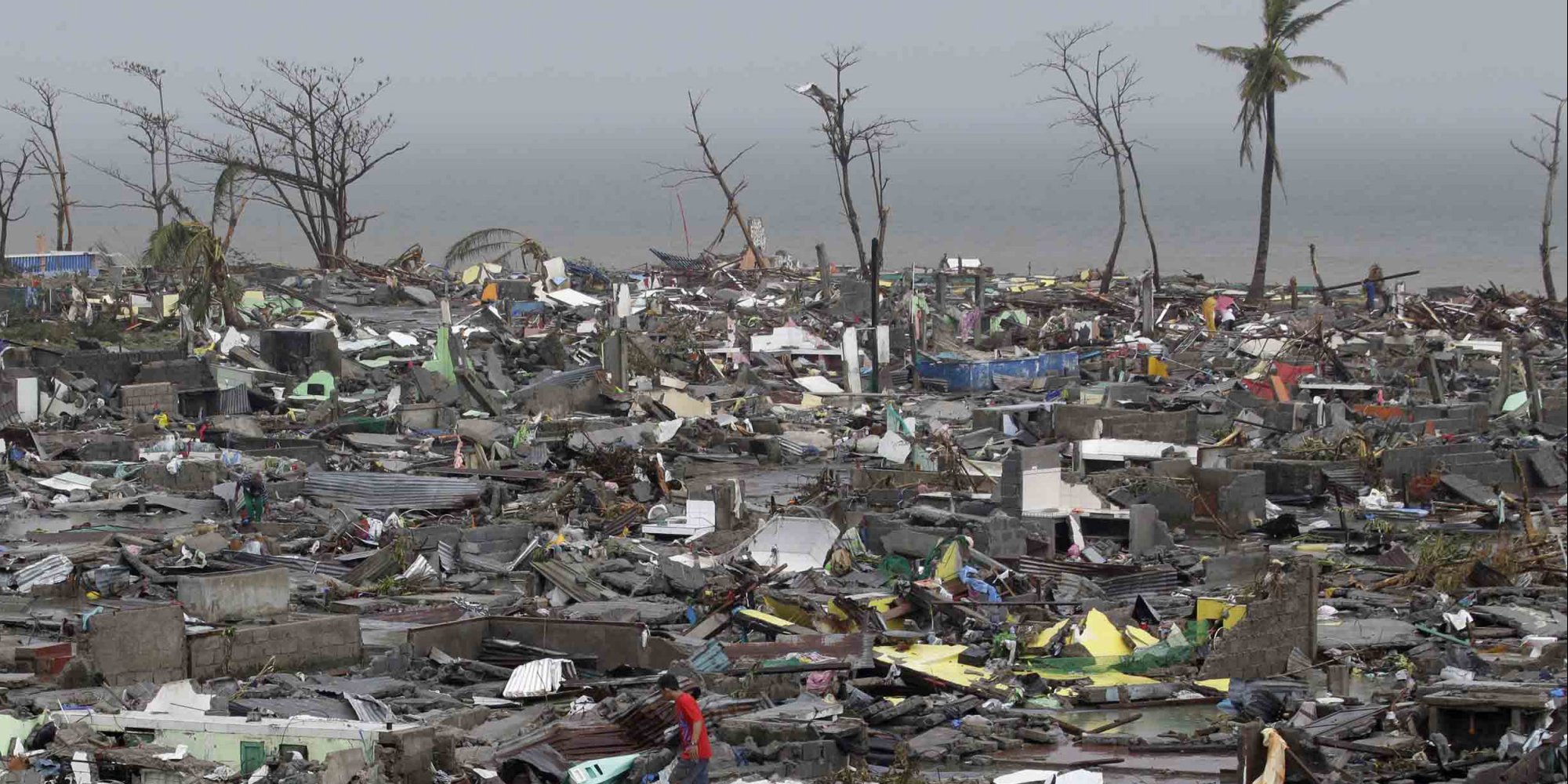 The most vulnerable are the children. “Those, who contributed the least to Climate Change, suffer the most.” as A. Mekouar put it, the president of COP22.
Joanna ended her statement with the question if our present actions face the problem of tomorrow and leaves a deep impact on all her listeners.
If we are aware that the cause of 45% of all child deaths is mal nutrition, which will be intensified by Climate Change; If we are aware that 50 million children live in high risk areas for tropical cyclones, that will be increased by Climate Change; if we are aware of the death of 600 000 children per year caused by polluted air, which gets dirtier everyday through fossil fuel; we must ask ourselves the question Joanna asked us: Do our present actions face the problem of tomorrow?
We should begin to worry not only about our future and the future of our friends, but also the future of foreign people, we never have met before, we did not even know they existed. We should start being worried about the whole planet, about nature, about humanity.
The most vulnerable are the children. “Those, who contributed the least to Climate Change, suffer the most.” as A. Mekouar put it, the president of COP22.
Joanna ended her statement with the question if our present actions face the problem of tomorrow and leaves a deep impact on all her listeners.
If we are aware that the cause of 45% of all child deaths is mal nutrition, which will be intensified by Climate Change; If we are aware that 50 million children live in high risk areas for tropical cyclones, that will be increased by Climate Change; if we are aware of the death of 600 000 children per year caused by polluted air, which gets dirtier everyday through fossil fuel; we must ask ourselves the question Joanna asked us: Do our present actions face the problem of tomorrow?
We should begin to worry not only about our future and the future of our friends, but also the future of foreign people, we never have met before, we did not even know they existed. We should start being worried about the whole planet, about nature, about humanity.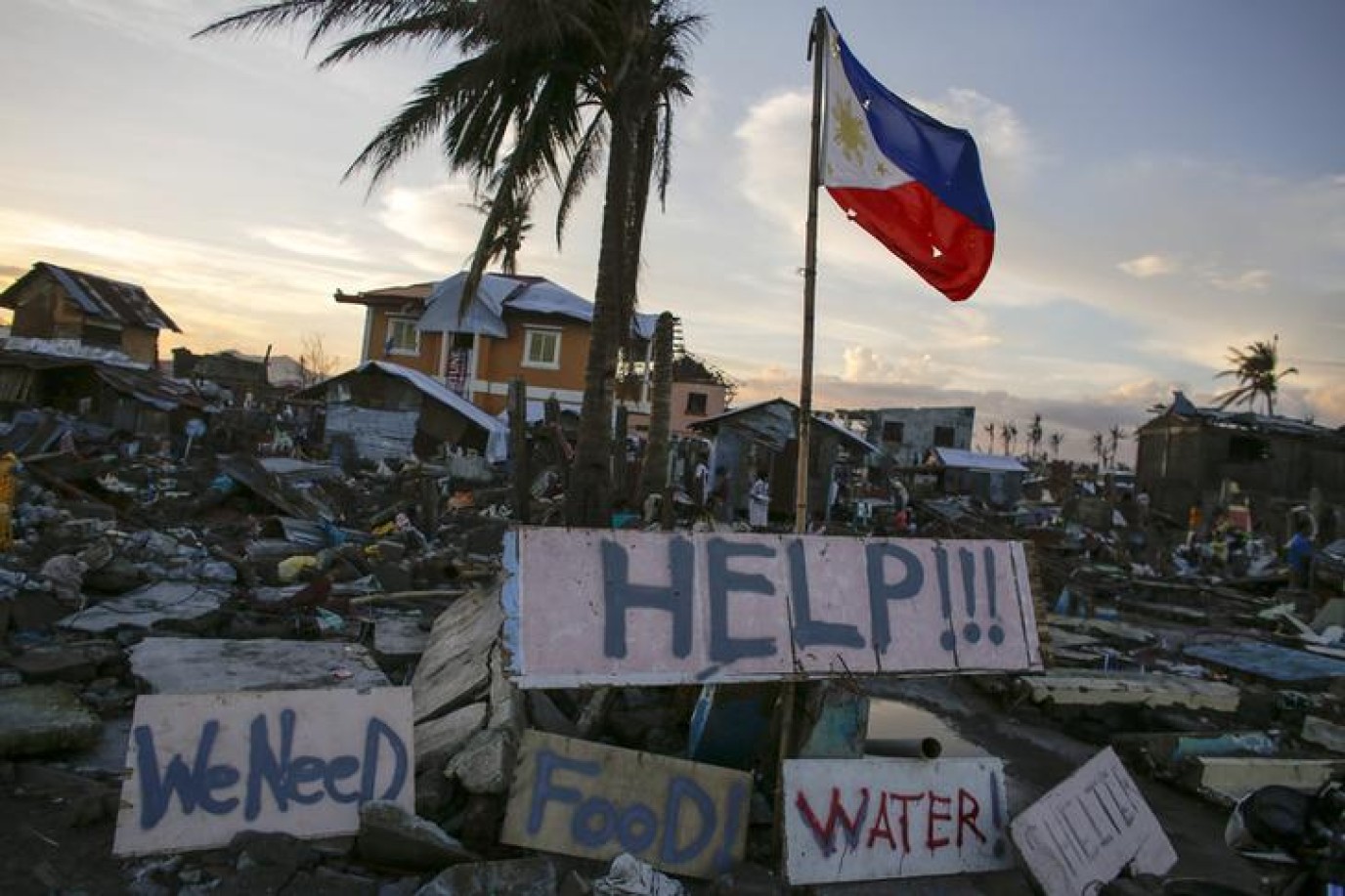 How do we approach this problem and how can we implement the recognition of children rights?
When we start focusing on alternative solutions, not only by providing solar panels and wind power stations, but also building infrastructure like roads and schools; and when we begin to change the circumstances those children suffer under, to empower them to design their own future and to contribute to solutions, then we are following the right path into a better future for everyone.
During the session, there was mentioned, that it should be the ultimate goal for parents to leave a better world for their children than the parents had themselves. In my opinion we are missing something crucial out here, though. It should be the ultimate goal to leave a better future for every human being, and especially for every child. Because right now we are running a dangerous experiment, namely we try to find out how much carbon dioxide the atmosphere can take, until we reach the tipping point and we begin to face a not changeable problem. And the worst thing is that those who contribute so much to Climate Change, do not experience the destructive and rogue consequences, and so probably do not care enough. But it should be the voices of children, who guide you with every decision you make. If there is only one child in the future losing its life to the environmental circumstances we created, we failed.
Today’s children are aware of this problem and do not close their eyes. They would approach the problem different and more urgently than we do, for as they have will under the consequences longer and more intense. It is our chance and task to act now and save those, who are disproportionally impacted and it is our obligation to give the children of today and tomorrow an opportunity to live a normal life in a normal world.
How do we approach this problem and how can we implement the recognition of children rights?
When we start focusing on alternative solutions, not only by providing solar panels and wind power stations, but also building infrastructure like roads and schools; and when we begin to change the circumstances those children suffer under, to empower them to design their own future and to contribute to solutions, then we are following the right path into a better future for everyone.
During the session, there was mentioned, that it should be the ultimate goal for parents to leave a better world for their children than the parents had themselves. In my opinion we are missing something crucial out here, though. It should be the ultimate goal to leave a better future for every human being, and especially for every child. Because right now we are running a dangerous experiment, namely we try to find out how much carbon dioxide the atmosphere can take, until we reach the tipping point and we begin to face a not changeable problem. And the worst thing is that those who contribute so much to Climate Change, do not experience the destructive and rogue consequences, and so probably do not care enough. But it should be the voices of children, who guide you with every decision you make. If there is only one child in the future losing its life to the environmental circumstances we created, we failed.
Today’s children are aware of this problem and do not close their eyes. They would approach the problem different and more urgently than we do, for as they have will under the consequences longer and more intense. It is our chance and task to act now and save those, who are disproportionally impacted and it is our obligation to give the children of today and tomorrow an opportunity to live a normal life in a normal world.
To read Joanna’s whole story, click here.
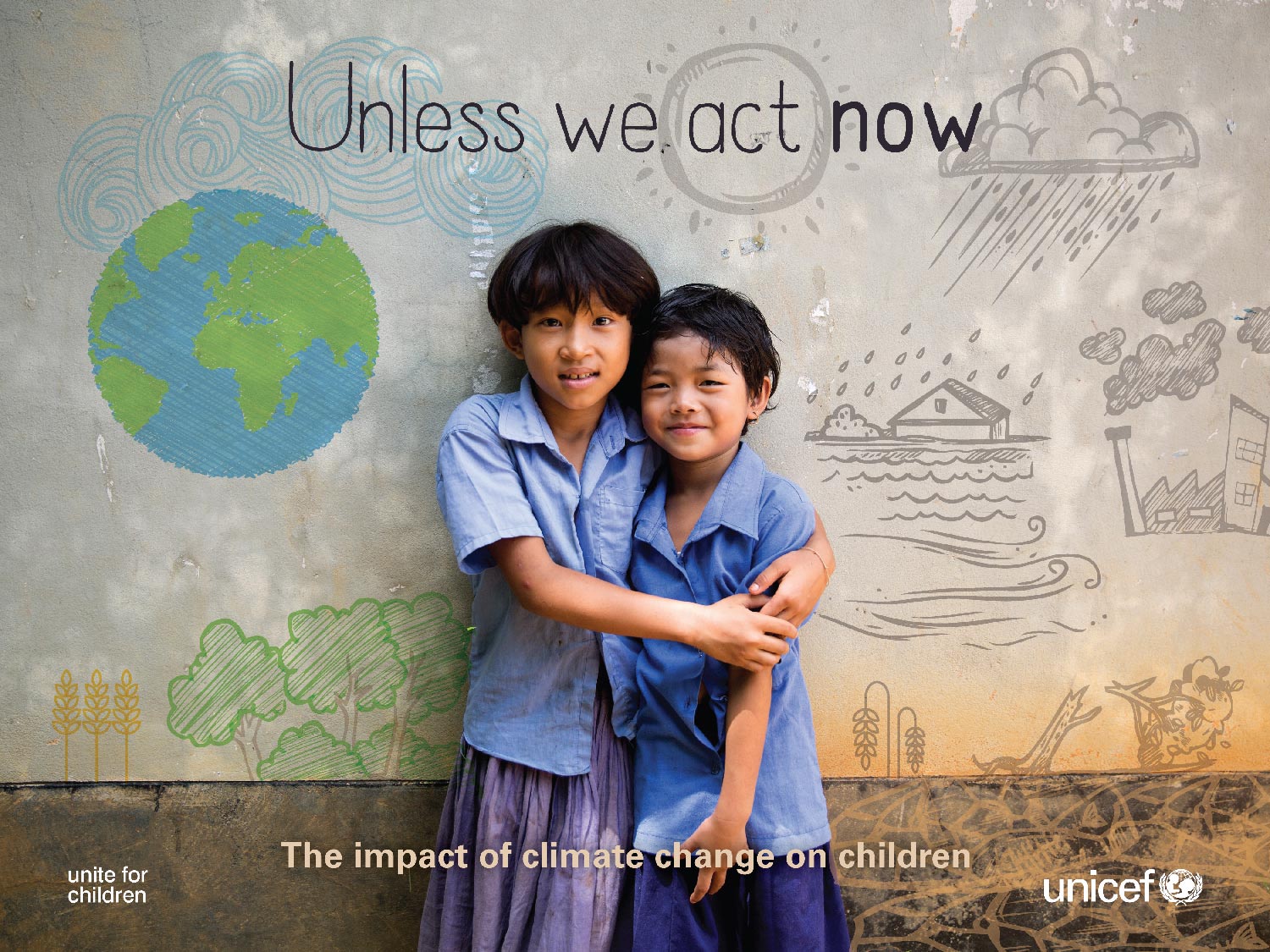 ]]>
]]>

